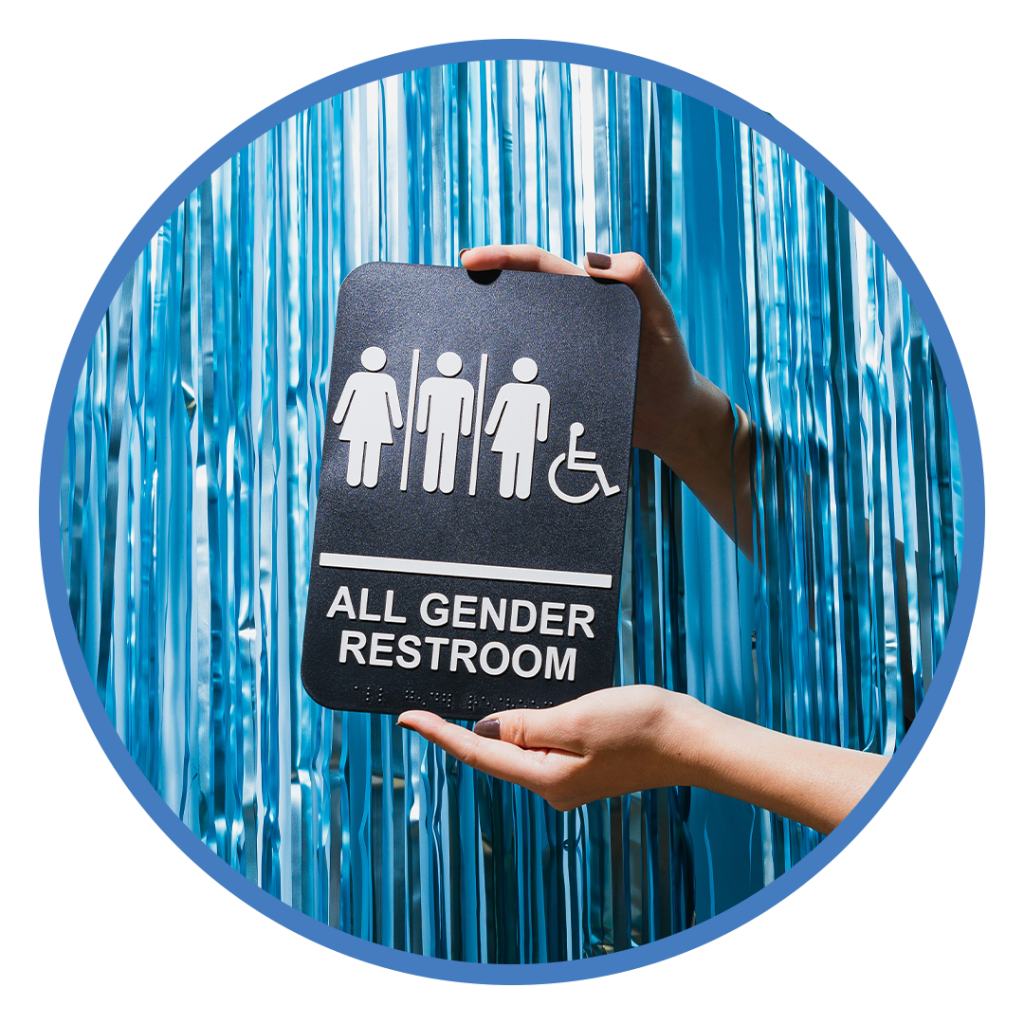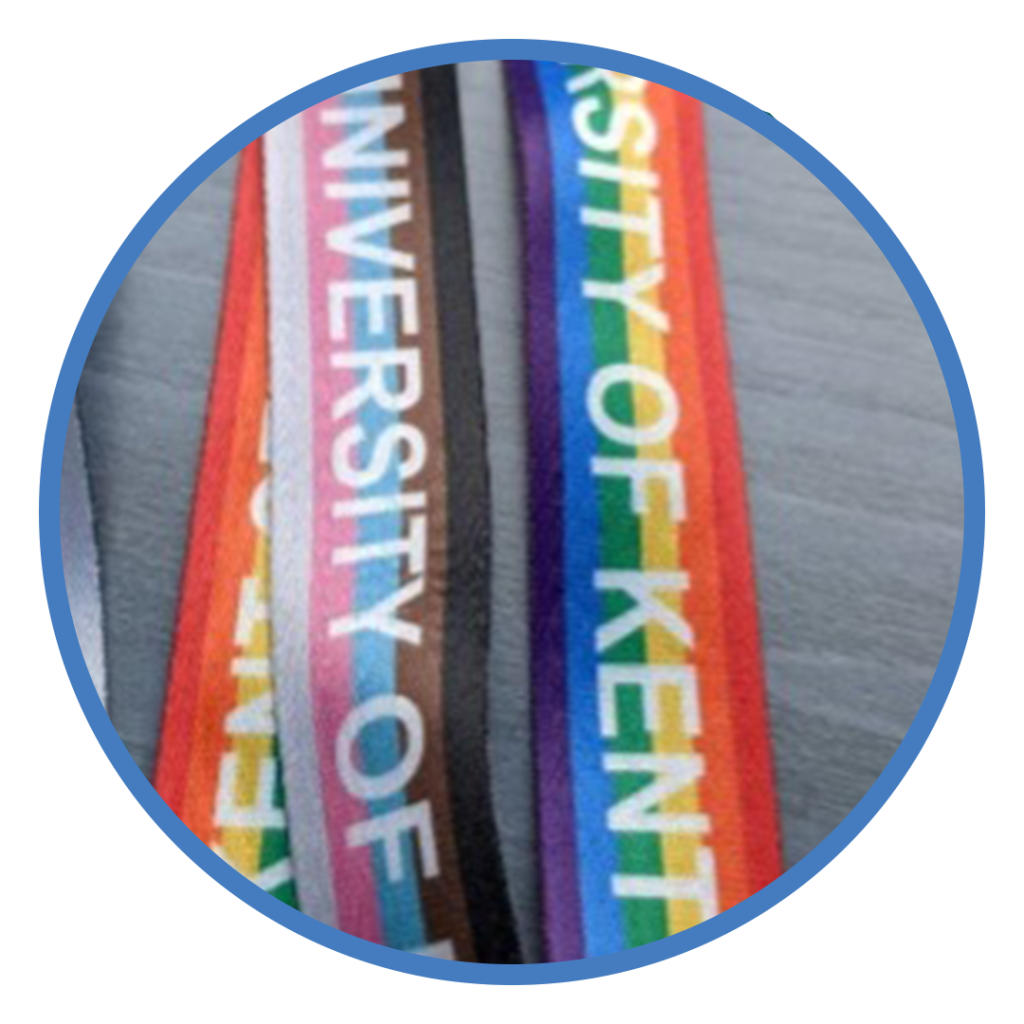
“I completed a Doctorate in Education in 2022, researching the experiences of transgender students in Higher Education in the UK, aiming not just to make the experiences of trans students bearable but to ensure they receive the same exciting and amazing experience that all HE students deserve. To do this, Higher Education Institutions (HEIs) need to be ready for trans students, providing an affirming experience that is founded on understanding.”
More information on the background to my research, the methodology and the findings can be found HERE, but in this article I will be identifying areas in which individuals and HEIs can improve the experience for transgender students.
Terminology:
Transgender/trans: An umbrella term to represent all whose gender identity and/or gender expression does not match the sex they were assigned at birth, or who do not conform to conventional gender binaries of man and woman.
Cisgender/cis: Someone who exclusively identifies as the sex they were assigned at birth.
Cisnormativity: How society is orientated around assumption that a person’s gender matches the sex they were assigned at birth.
Deadname: The birth name of a trans person who has changed their name.
Implications for professional practice
Here are the main themes investigated in my study, including quotes from some of the interview participants which help to demonstrate some of their experiences.
Institutional facilities and administration
Poor administrative processes can lead to a multitude of difficulties for trans students, including ID cards, student data records, email addresses, IT systems and registers showing a student’s birth name, which may be different to the name they are known as. Many students in my study reported that the HEI had failed in ensuring that changes filtered down to the academic and support staff, resulting in continued deadnaming and misgendering.
“One of the biggest problems for me in my experience was that I was constantly reminded of the name I didn’t choose… If they call me by my old name, I just feel 21 years of frustration and anxiety building up in me… That’s just all of these constant reminders are just really unpleasant and hurtful… The first time I held a preferred name ID, student ID in my hand, I cried, tears of joy.”
Siegel (2019) suggested that the difficulties faced by trans students in making the relevant changes to their record, the resistance from HEIs to make this an easy process, and failings in university IT systems to be able to show these changes, can result in “digital misgendering” with students being ‘outed’ online.
These problems result in feelings of invalidation and exclusion for trans students and the creation of an atmosphere of inequality. Educators and administrators are implicated in allowing certain practices to continue, such as administrative systems that deny a trans student’s identity and reiterate gender as a fixed binary.

The provision of gender-neutral toilets is important for all transgender students as it allows those whose appearance may not match the gender they identify as a safe environment, and those who identify outside of the gender binary a space that they can use without having to choose a binary option that does not correspond to their identity. Many HEIs take the ‘easy option’ of designating disabled facilities as gender-neutral. Whilst providing a choice for trans students, this is also potentially diminishing choice for another marginalised group for whom access to these facilities is essential.
“The gender-neutral toilets are also the disabled toilets, which is interesting because I’m able-bodied and so I don’t always feel comfortable using toilets that are specifically for disabled people.”
What is needed are dedicated facilities, and this is something that should certainly be considered when planning new-build or refurbishment projects.
Creating an inclusive curriculum
Creating an inclusive HE curriculum will require effort on behalf of those involved in curriculum design to critically examine cisnormativity within the curriculum, and on behalf of the institutions to address resistance to anti-oppressive change in teaching practices. Although it could be argued that some subjects are ‘harder’ than others to be representative, one would think that English Literature would be one of the easier subjects. But look at what this student had to say about a book, assigned to a gender and sexuality module:
“If you are cis you probably look at it and find it really interesting, but when you’re trans, you’re reading it and it’s, it’s really bad… I read it and I was like, this is awful, why am, why are they making me read this?”
Participants who were studying professional health and social care subjects are often not being provided with the ‘tools’ to help them work with and respect trans people they might encounter on placement or once qualified. It is important that these students learn about how to address and talk to trans people, the value of affirming language, and how to recognise and address prejudice and bias.
“It’s about having a vocabulary for it, about feeling okay not knowing and feeling okay to be able to sort of say ‘I’m not that familiar with working with trans people, can you help me out here? What pronouns do you like to use? How do you like to refer to things?”
Better knowledge of the specific barriers and experiences that trans patients have when accessing health and social care services, as well as understanding that being trans is not always the number one reason for accessing medical or mental health care, are important in reducing the invalidation and invisibility that trans people frequently face. In a societal climate where trans people experience hostility and vulnerability, practitioners who are supportive, non-discriminatory and culturally competent are more important than ever.

Improving mental health & wellbeing support for transgender students
Trans people are at higher risk of mental health difficulties, self-harm and suicide (Thorne et al, 2018). Participants reported feeling unsupported with regards to mental health and counselling support. The British Association for Counselling and Psychotherapy (BACP) acknowledges that despite the higher rate of mental health concerns among trans students, there is a lack of understanding and experience in supporting this student group and suggested that in addition to the stressors experienced by all HE students, trans students have additional complications to deal with, including lack of social support (including rejection by family, religion and friends); managing an outward appearance that may not correspond with their identity; and added financial difficulties, especially if they have no family support (Swanbrow Becker, 2019).
Waiting times for referral to UK Adult Gender Identity Clinics are high – up to 75 months’ wait for a first appointment, depending on where they are in the UK (Gender Construction Kit, 2024). This means the support that universities provide for transgender students is even more important, but those providing the support must have an understanding of the difficulties they may be experiencing.
What can I do?
There are things that you can do at an individual level to show and provide support.

– Wearing rainbow lanyards shows students that they can ‘bring their whole selves’ to you without fear of judgement or an unsupportive reaction.
– You can put your pronouns in your email signature, and include a link to a website such as pronouns.org so that people can find out more. This normalises sharing pronouns, taking away the expectation that only trans or non-binary people need to share pronouns and disrupting the privilege of assumption.
– Use inclusive language and respect pronouns; this is not much to ask. Do not assume pronouns based on the way someone looks or sounds.
– Familiarise yourselves with the support available for transgender students at your HEI –know where to find the information and what to do if, for example, someone wants to know how to change their name on university systems. Being able to help them and know how the university can support them will make things much easier in what can be a confusing and difficult time, and goes a long way to helping trans students feel validated and safe.
Where next?
I thought I would finish with a quote from one of the students I interviewed:
“Diversity doesn’t only talk about transness, diversity talks about everything from, culture, age, income, all these factors that make people different, or that make people’s outside circumstances different… University is there to teach humans how to be humans… I think there should be, either during induction week or actually just one tiny, tiny module or something, where we learn about proper conduct with other human beings… if high school doesn’t do it then university really should. I mean, Christ, it’s really time now, isn’t it?”
References:
Gender Construction Kit (2024) UK service wait times – updated April 2024, genderkit.org.uk. Available at: https://genderkit.org.uk/resources/wait-times/.
Regan, Lynne. 2023. “A Mixed Methods Investigation into the Experiences of Transgender Students in Higher Education in the UK.” Bulletin of Applied Transgender Studies 2 (3-4): 195-222. https://doi.org/10.57814/8n20-g959
Siegel, D. P. (2019) ‘Transgender experiences and transphobia in higher education’, Sociology Compass, 13(10), pp. 1–13.
Swanbrow Becker, M. (2019) ‘Supporting transgender college students on university and college campuses’, University and College Counselling, 7(3). Available at: https://www.bacp.co.uk/bacp-journals/university-and-college-counselling/september-2019/supporting-transgender-college-students-on-university-and-college-campuses/.
Thorne, N. et al. (2018) ‘A comparison of mental health symptomatology and levels of social support in young treatment seeking transgender individuals who identify as binary and non-binary’, International Journal of Transgenderism, 20(2–3), 241–250.

My AHEP Experience:
What benefits have you found being an AHEP member?
Being a member of AHEP has provided some great networking opportunities, and attending the 2024 Annual Conference gave me a fantastic opportunity to share my research with the HE Professionals who can really make a difference.
I am part of the University of Kent AHEP Network which is a great opportunity for skills exchange and just spending time with other like-minded professionals. AHEP is a wealth of information and knowledge that can help HE professionals to develop and network, with access to useful resources and training opportunities… and the discounted tickets for the Annual Conference was certainly a plus!
The latest from Development Monthly:
